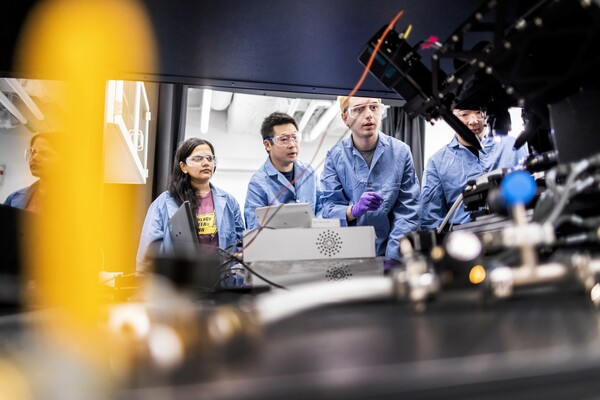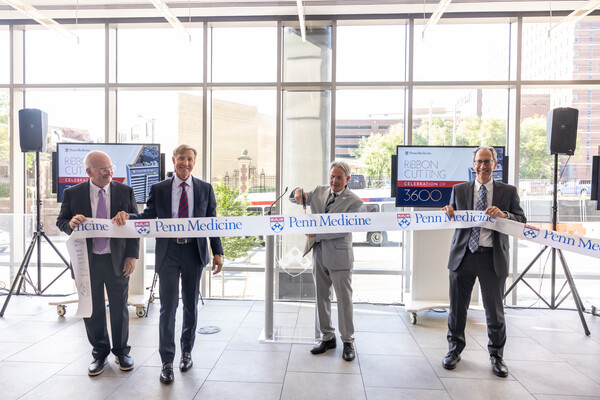
Image: Kindamorphic via Getty Images
Chester County Hospital’s (CCH) research department is a small but mighty engine driving inquiry and evidence-based patient care.
Katie Luzi Costantini, the current director of Maternal Child Services for CCH, has been working with the hospital’s research department for the last few years on a question that affected how she cares for patients.
In April 2018, the American College of Obstetricians and Gynecologists (ACOG) proposed a new paradigm for postpartum care, updating the recommendation for the first OB/Gyn follow-up from six weeks after birth to no later than three weeks postpartum. Costantini, who was then a CCH maternal child nurse, found the revised position lacking.
When Costantini turned to published studies to understand the full scope of a new mother’s experience and how to better meet those needs, there was very little available. That’s when she decided to take matters into her own hands.
In early 2020, Costantini organized a team to conduct research about the “fourth trimester,” the term used to describe the first 12 weeks postpartum. That’s where CCH’s research department came in.
The department was formed in 2007 with Cindy Brockway, as its director. Cheryl Monturo, senior nurse research scientist, was added in 2015.
The research team recommended a design for the study: phenomenology, a type of qualitative research that explores a person’s lived experiences. They helped the team develop a semistructured interview guide they would use to conduct phone interviews with patients who consented, a few days after they left the hospital. And once the interviews were completed, Brockway and Monturo instructed the group on how to analyze the responses. But first they helped them spot and note their own biases.
“For example, we know the lactation consultants are focused on breastfeeding,” Monturo says. “But maybe the mom’s focus is not on that, so we want to note it and try not to impose that perspective on the data.”
Starting last fall, team members conducted a total of eight interviews with first-time breastfeeding mothers and analyzed their results in a structured way that gave qualitative insight into what the researchers describe as a new mother’s “new normal.” Team members are currently writing a manuscript and plan to submit it to a peer-reviewed journal before the end of the year. Brockway and Monturo helped them divide the writing and select the journal. For now, the study will be used to stress the importance to CCH’s maternal child care team of maintaining a connection with first-time breastfeeding mothers in the immediate postpartum period, Costantini says. The results, she notes, affirm for her that more support is needed during the fourth trimester.
“We’re hoping to help our care team start to focus not just on getting through the labor and delivery portion of a pregnancy but also help patients set up a sufficient support system at home,” Costantini says. “We also plan to encourage patients to start having discussions with their partner about their expectations for this support as part of our prenatal education.”
Monturo says it’s clear that the research department has helped inspire a cultural change at the hospital.
“Oftentimes, when people talk about changing a practice, they talk about it like throwing spaghetti against the wall—let’s see what sticks—versus going to the literature and figuring out what works,” Monturo says. “If anything, we’ve seen a distinct change in the language. At a meeting now, people are less likely to say, ‘Let’s try this’ or ‘Let’s try that.’ Instead, they’re asking, ‘Has anybody looked at the evidence?’ And that’s been a big, big change.”
Read more at Penn Medicine News.
From Penn Medicine News

Image: Kindamorphic via Getty Images

nocred

nocred

(From left) Kevin B. Mahoney, chief executive officer of the University of Pennsylvania Health System; Penn President J. Larry Jameson; Jonathan A. Epstein, dean of the Perelman School of Medicine (PSOM); and E. Michael Ostap, senior vice dean and chief scientific officer at PSOM, at the ribbon cutting at 3600 Civic Center Boulevard.
nocred